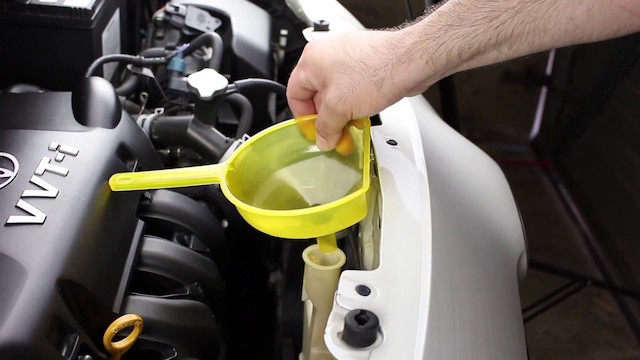How Often Do I Need a Coolant Flush?
Regular coolant system flushes are important to the health of your vehicle. If they're performed on a regular basis, they ensure that your engine operates at the right temperature. They also help with the function of your vehicle's heating and air conditioning systems, making the cabin more comfortable.
Many people don't realize the importance of regular cooling system maintenance. As a result, coolant becomes contaminated. Eventually, contaminated coolant can lead to leaks, a damaged water pump, a damaged radiator, or even a serious engine problem like a blown head gasket. Here's what you need to know.
How Often Should the Coolant Be Flushed?

Image Credit: Channel 1
The best time to replace or flush the coolant in your vehicle is when it becomes contaminated and/or when it loses effectiveness. To determine if your coolant needs to be replaced, you can examine coolant for signs of contamination. You can also conduct a coolant test (or ask your local dealer's service department to test), which can tell you if the coolant has lost the ability to sufficiently cool your engine.
Coolant is a "wear item," and some vehicle uses cause coolant to deteriorate faster than normal. For example:
- Long periods of idling
- Stop and go traffic
- Hot or cold weather
- Towing/hauling
- Aggressive driving
Can all lead to rapid coolant deterioration.
How the Cooling System Works
Coolant enters from the main coolant tank and passes through the radiator, water pump, thermostat, and cooling passages in the engine block. Its presence keeps the block from overheating, and also keeps it from freezing. Heat is "absorbed" inside the engine, then "released" in the radiator.
If your engine is low on coolant (or appears to be), it's a good idea to understand that:
- You should not open the radiator cap to check coolant levels (especially if the engine is warm or hot). Most modern vehicles have an overflow tank you should inspect instead.
- Coolant holding tanks must be filled in a very particular way, and it's a good idea to let a service professional handle it for you.
- If you decide to top off the fluid in your cooling system, remember that engine coolant comes in a variety of formulations. Each vehicle requires a special type of coolant.
The cooling system isn't complex, but a mistake made when filling the system can lead to big problems. Unless you have experience, we suggest letting a professional handle it.
What Can Go Wrong If Coolant Isn’t Replaced As Needed?
So, what are the consequences of not getting your cooling system flushed? Basically, the coolant won’t be able to do its job properly. Coolant is a special chemical that absorbs heat from the engine and then releases it back to the atmosphere via the radiator. The coolant's ability to absorb and then release heat is diminished by extreme heat and extreme cold.
Coolant can also become contaminated. Normal vehicle use leads to coolant contamination from seeping gaskets, scaling inside the coolant system, etc. Even if the coolant is able to absorb and release heat, it can be contaminated enough to cause a clog in some part of the cooling system. Clogs lead to reduced efficiency, and over time enough clogs will lead to all sorts of issues:
- The engine will overheat OR the engine can freeze
- The water pump will break
- Hoses can crack or split and leak
- The HVAC system won’t function properly, leading to less heat in the winter and more heat in the summer
- The radiator can become so clogged as to require replacement
Obviously, the moral of the story: Don't ignore cooling system maintenance.

